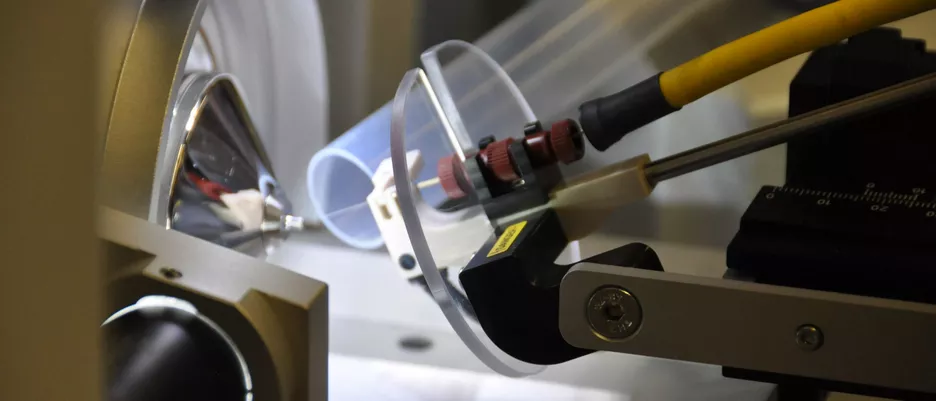This content is only available in English

Proteomics
The Proteomics Core Facility provides competent scientific support for your proteomics project, from experimental design through data acquisition, bioinformatics analysis and data interpretation.
Goals and Strategy
- Apply proteomic technology to investigate diseases, molecular pathways and drug mode of actions
- Engage in collaborations with research groups from the TranslaTUM, the MRI and beyond, providing proteomics know-how and start-to-end project support
- Advance and optimize proteomic techniques for medical research applications
- Promote the education and scientific expertise of our collaborators and young scientists

Proteomics Technology in Life Science Research
Proteins are essential building blocks of all living organisms and the main components in metabolic pathways or signaling cascades. Systematic study of the proteome – the entire complement of proteins expressed by a cell, tissue, or organism at a given time – is therefore essential to investigate molecular levels of cellular regulation. Mass-spectrometry-based proteomics is a highly successfully technique for the identification and characterization of proteins and proteomes, allowing for the investigation of the underlying mechanisms of diseases, characterization of molecular pathways or unraveling of drug effect

The Proteomics Core Facility Offers a Wide Range of MS-based Applications
- Protein and peptide identification
- Identification and localization of post-translational-modifications (PTMs)
- Absolute and relative quantification of proteins and PTMs, by means of all major quantification workflows including SILAC, TMT, dimethyl and label-free analysis
- Investigation of protein complexes and protein-protein interactions
- Investigation of protein turnover and stability
- Localization of proteins within a cell or tissue
- Chemical proteomics: e.g. kinase profiling
- Ligand-protein interaction
- ... and more
Infrastructure
The Proteomics Core Facility is equipped with state-of-the-art chromatography and mass spectrometers which allows deep proteome analysis, as an example:
- more than 9,000 proteins and 120,000 peptides can be identified and quantified in 16 h
- more than 30,000 phosphopeptides identification can be obtained in 12 h
- protein-protein or protein-drug interaction experiments can be analyzed in 20 min per sample
- using sample multiplexing via tandem mass tags we can increase throughput to 11 proteomes in 16 h
We apply project-tailored proteomic sample processing workflows and quantification techniques and provide the bioinformatics infrastructure for fast data processing, and secure data storage. To aid with data evaluation and interpretation we use a wide range of bioinformatics tools – from graphical representation with statistical significant analysis, to enrichment and network analysis.
Your Collaboration Partner for Proteomics Research
The Proteomics Core Facility at Klinikum rechts der Isar is part of BayBioMS (Bavarian Center for Biomolecular Mass Spectrometry), the latest science and technology platform of TUM and MRI providing access to state-of-the-art proteomics tools and scientific expertise. Together with our collaborators at the TUM faculties, the greater Munich area and across Germany, Europe and the world we push the frontiers of molecular research in all areas of the life sciences.
Please contact us for project requests or general questions about Proteomics! More detailed information is available through our website.